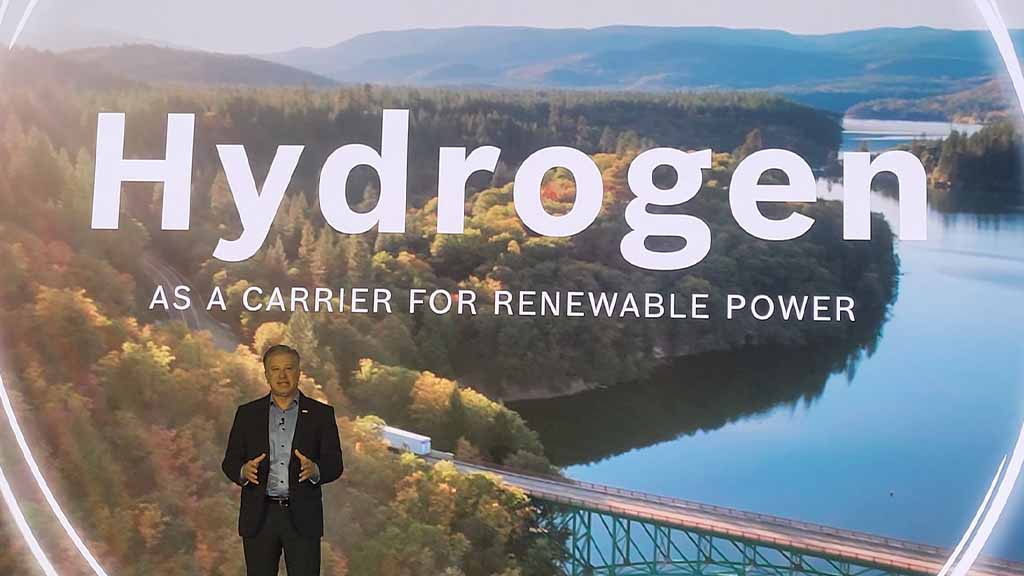News
Bosch will launch first hydrogen vehicle engine this year, Hyundai lays out hydrogen production plan

German tech and engineering giant, Bosch and Korean automaker Hyundai has shared their plans to develop hydrogen engines and future strategies at Consumer Electronics Show (CES) 2024 in Las Vegas.
With the rising demand for electric vehicles for maximum carbon neutrality and sustainability, large transportation and utility vehicle maker are also finding their way toward hydrogen engine technologies to reduce reliance on traditional fuels.
The hydrogen combustion engine with hydrogen as its fuel works similarly to the traditional engine with pistons compressing a mixture of air and hydrogen to generate power.
However, the hydrogen, when burned, only releases water vapor in its aftermath and significantly cuts greenhouse gas emissions compared to fossil fuels.
At CES 2024, Bosch outlined business plans across its automotive business including hydrogen combustion engine development as part of its 78 billion euros ($88 billion) organizational restructuring.
The company also planned to launch its first combustion engine this year. The engine design will consist of many components from traditional vehicles and will lead to less investment and technical support to build this new engine.
The company is also working on components for a hydrogen engine, which converts fuel directly into energy without first converting it into electricity. When powered by green hydrogen, this engine is practically carbon neutral.
Bosch has already received orders for fuel cell systems from truck manufacturers in U.S., Europe, and China.
Hyundai:
On the other hand, Hyundai Motors shared plans around hydrogen production, storage, transportation, and utilities to achieve carbon neutrality in different businesses including steel production.
The carmaker says it plans to produce hydrogen from animal waste and plastics. For that, Hyundai may build a facility in Indonesia to develop a waste-to-hydrogen system.
Another proposed plan to produce hydrogen includes melting waste plastics that cannot be recycled, gasifying the molten residue, and removing unnecessary elements to produce hydrogen.
(source – Bosch)
